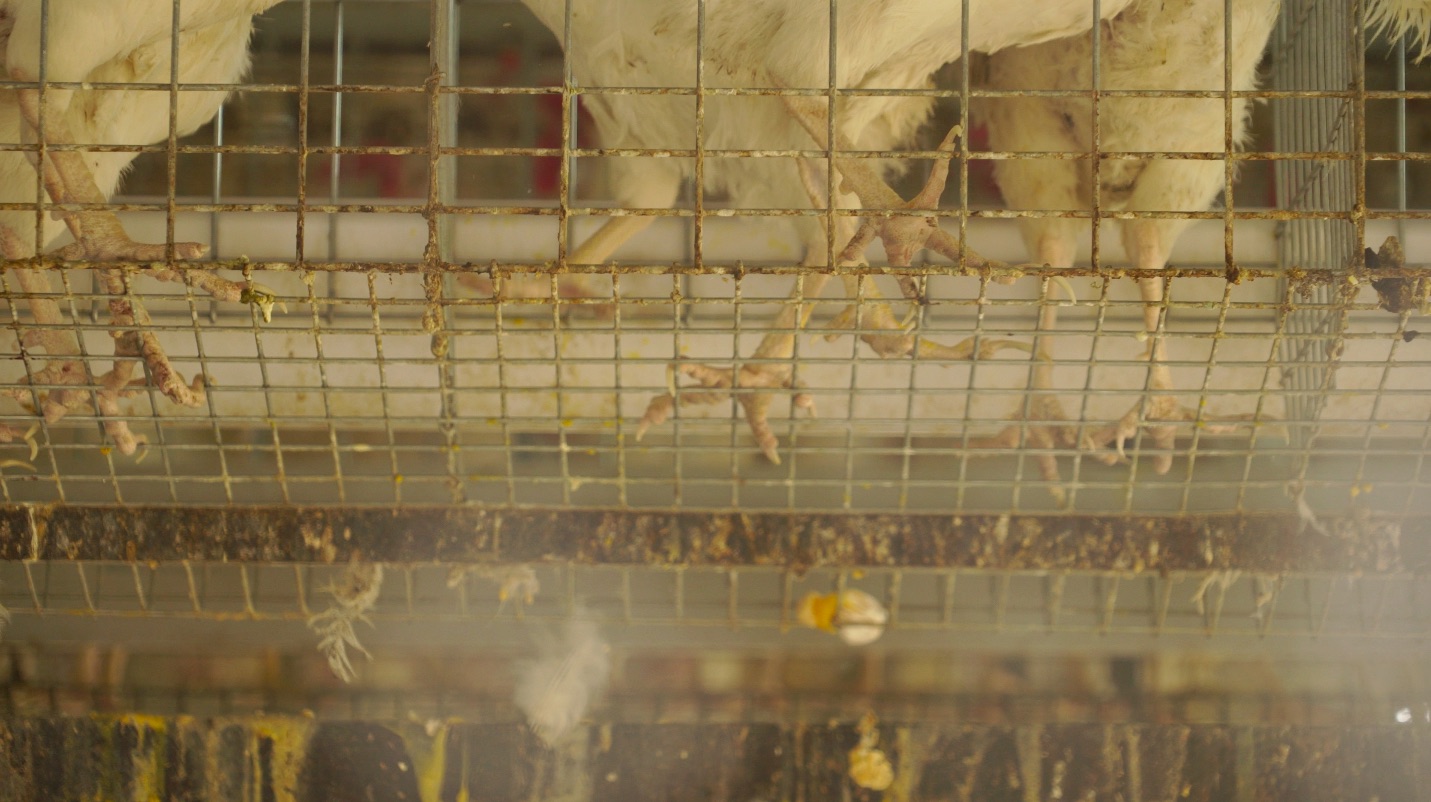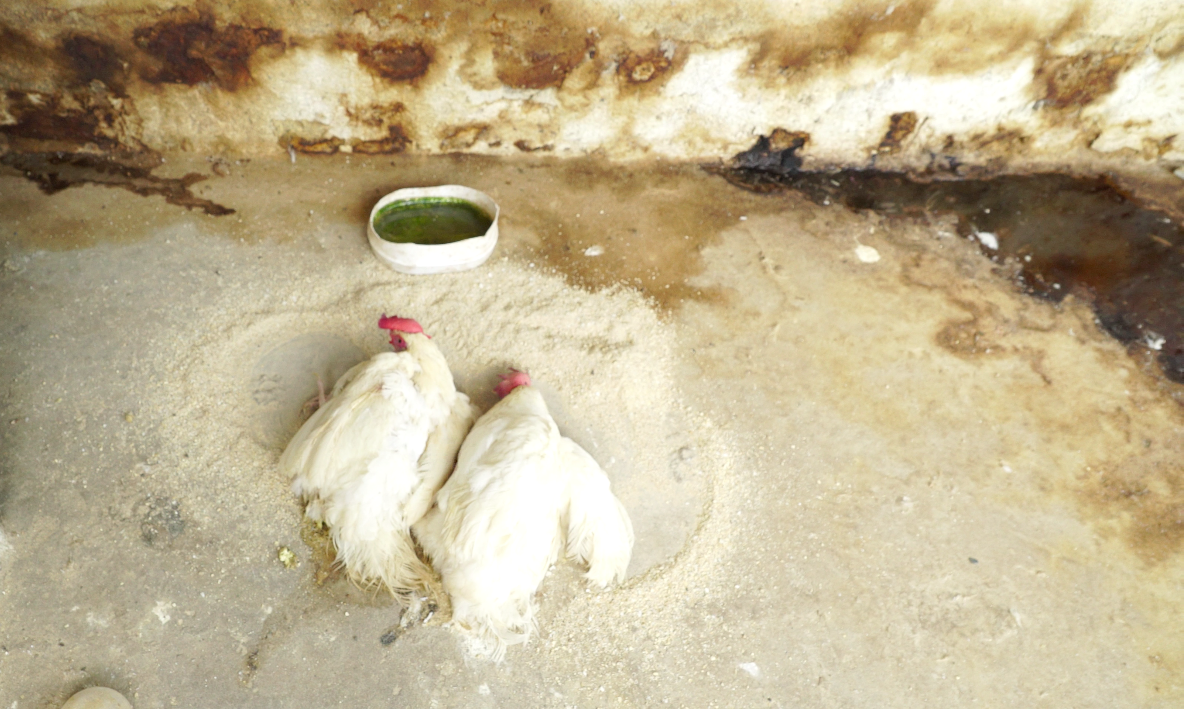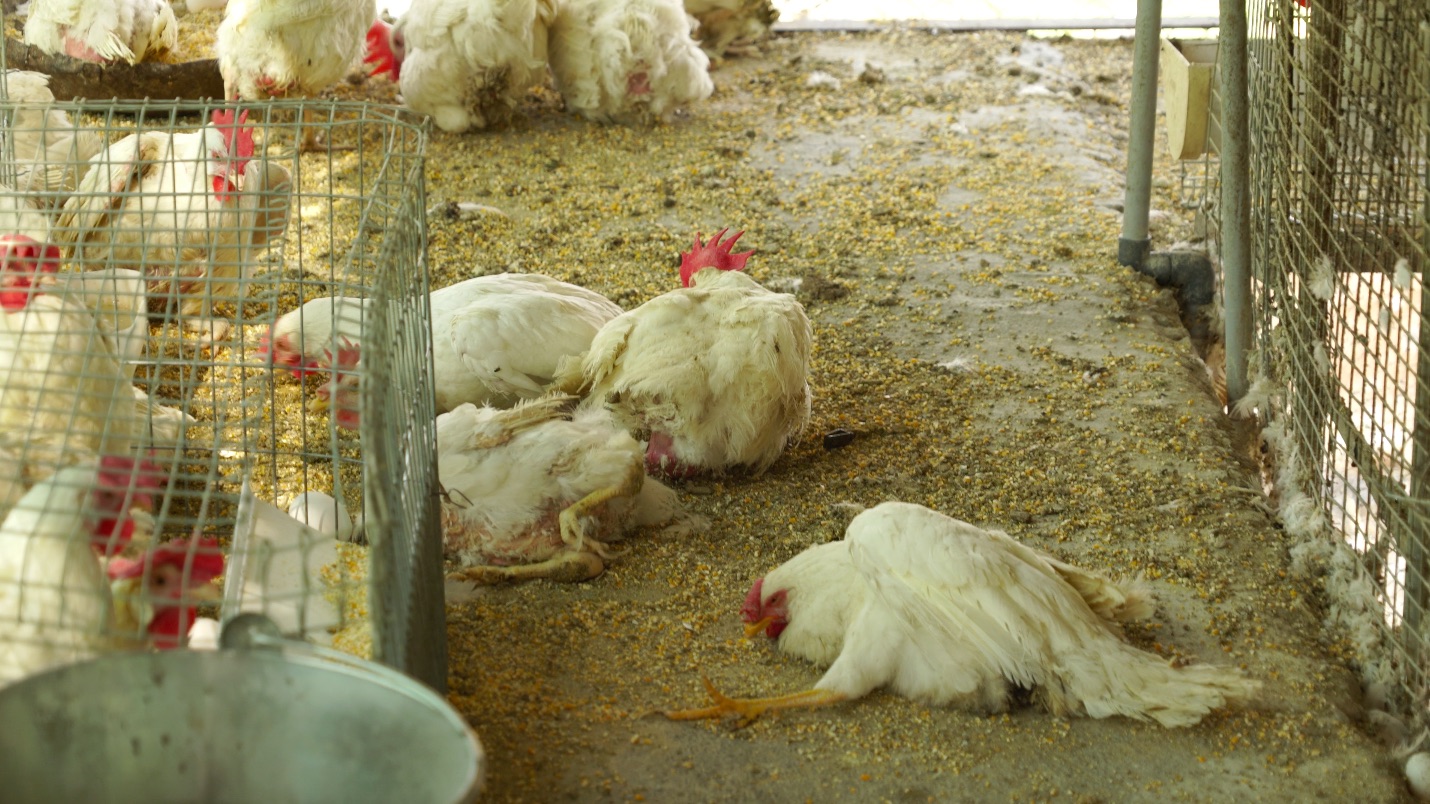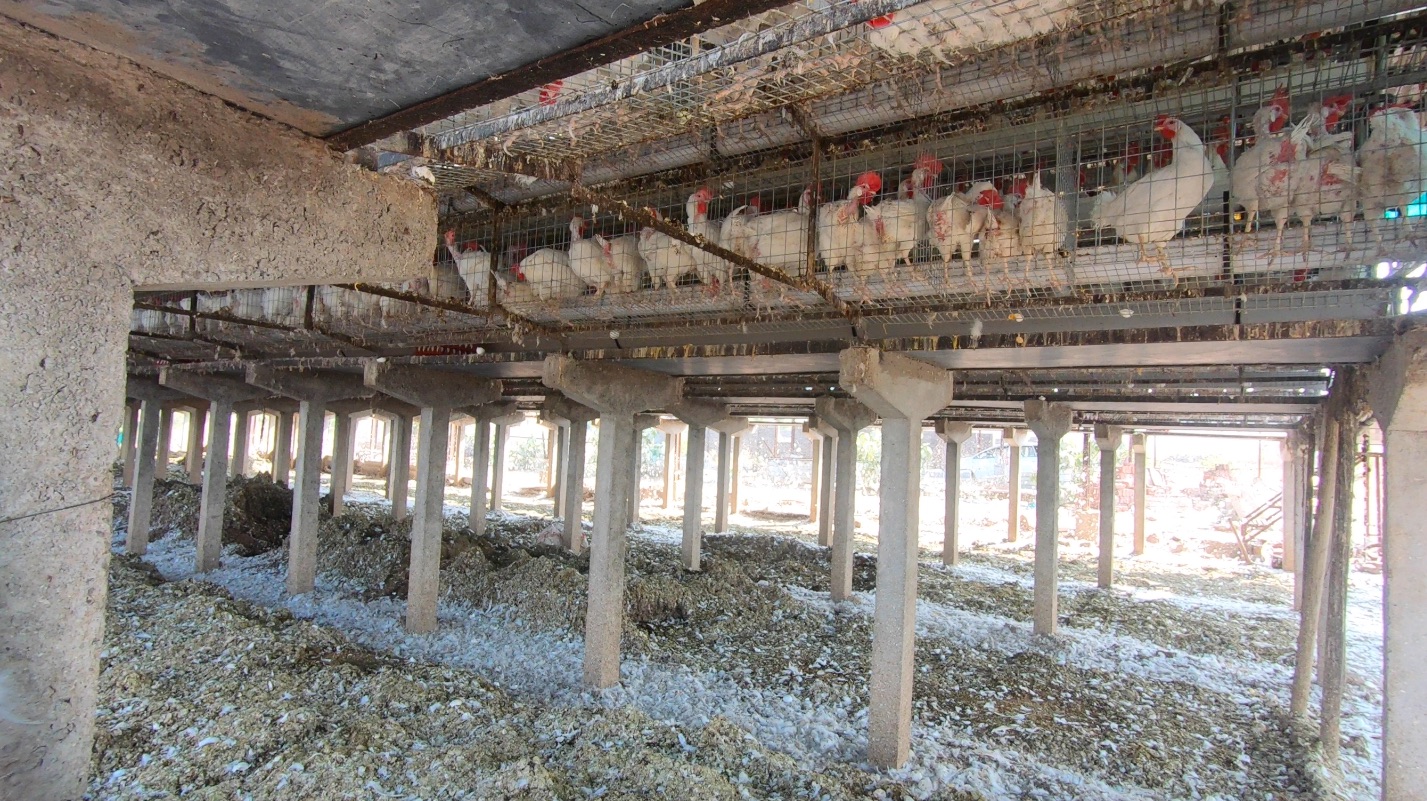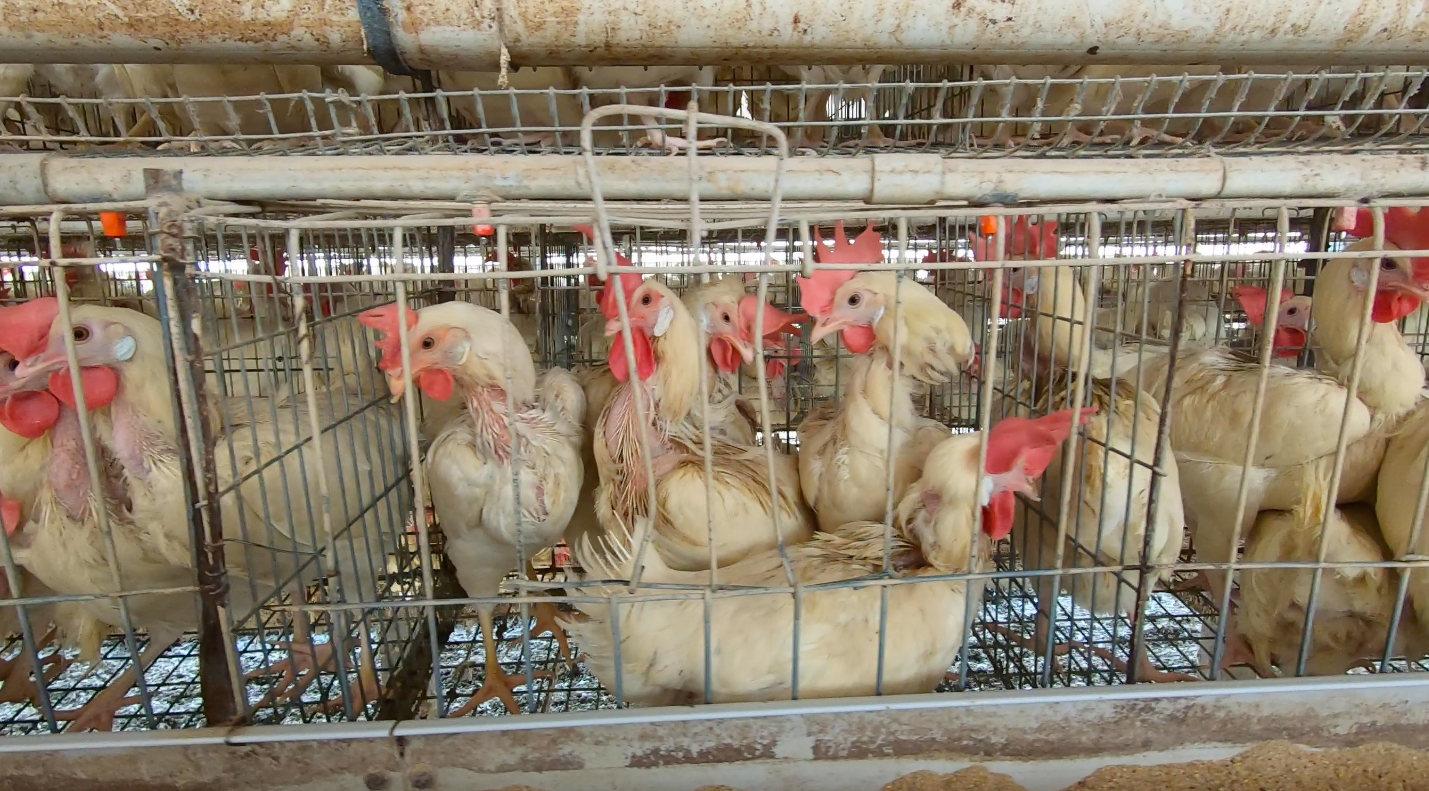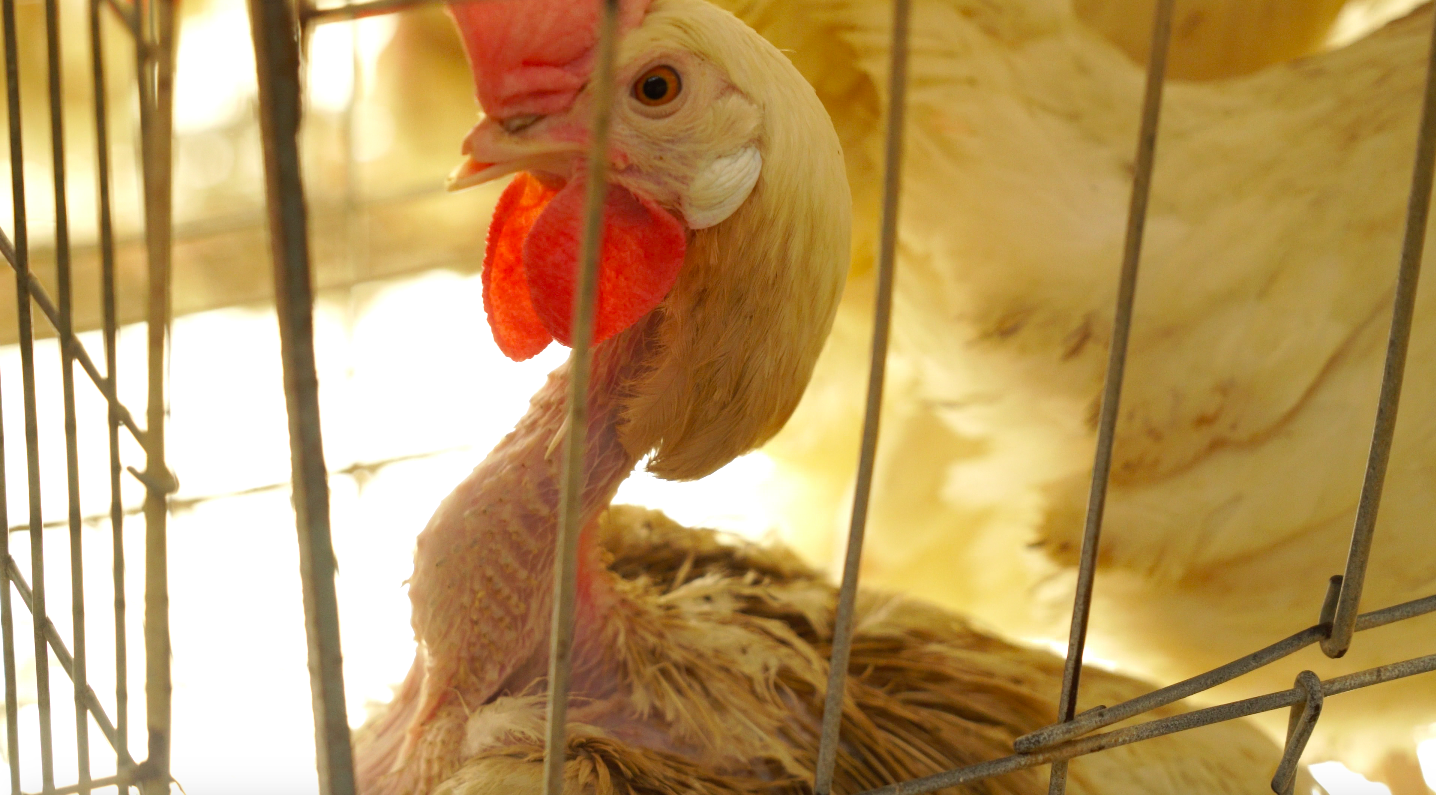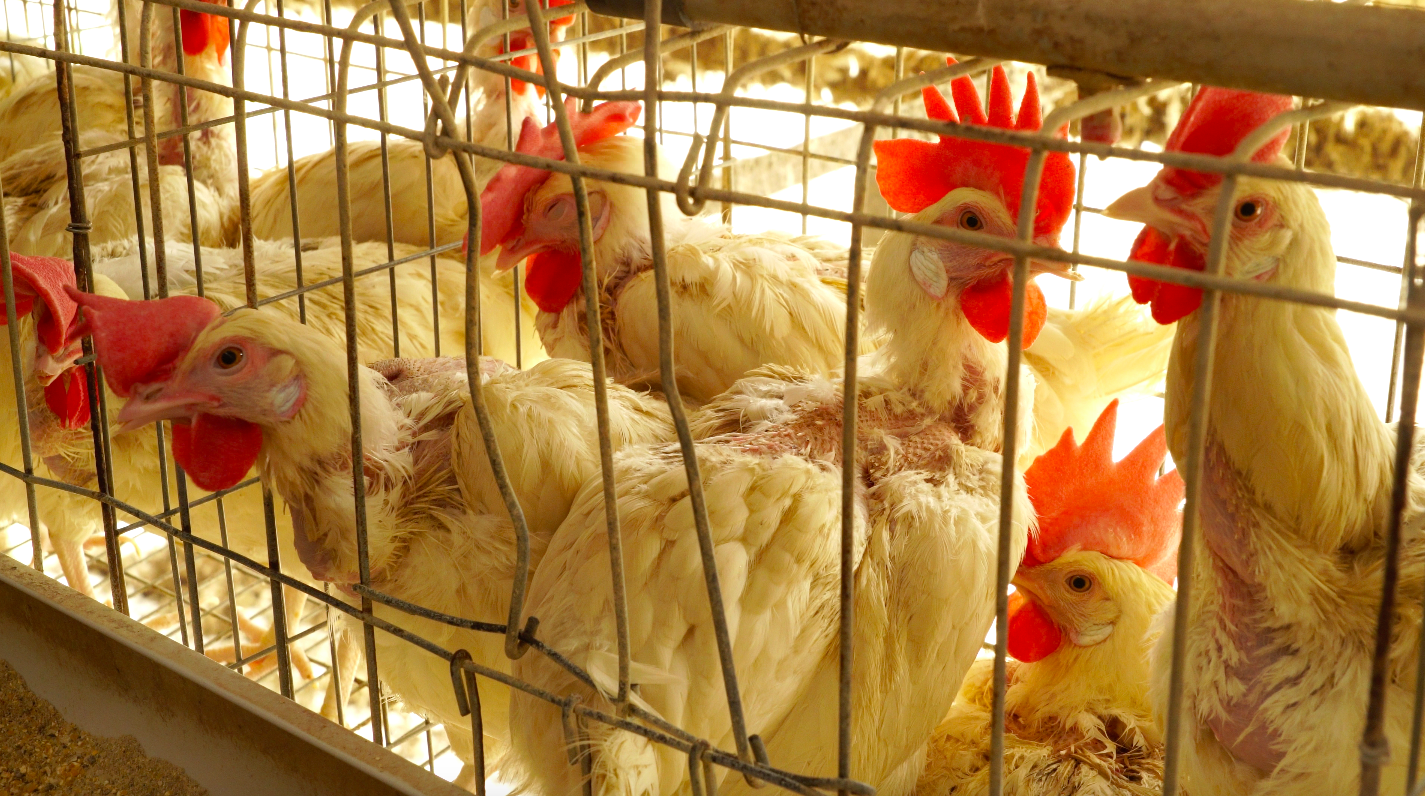
The cruel and illegal practices in the egg industry
[embed]https://youtu.be/7x4NbVdsY6c[/embed]
A recent investigation by Animal Equality reveals cruel and illegal practices at egg farms across India. The investigation was conducted in egg facilities in Feb 2019 in Maharashtra, Gujarat, Andhra Pradesh and Telangana, which are known for their egg production.
Our findings:
- Four to eight hens crammed in a cage no bigger than two A4 sheets of papers. Hens stepping on each other in an attempt to find space to move.
- Hens with sore, cracked and deformed feet from the wire floor of cages.
- Overcrowded cages stacked one on top of another, causing urine and feces to fall onto birds in lower cages.
- Hens missing their feathers and suffering from abrasions and skin irritations, probably due to the high concentration of ammonia in their litter.
- Little to no veterinary care.
- Sick hens left to die a slow agonising death.
- Litter collected in huge piles underneath the stacked cages, only disposed of once every few weeks. This lack of timely disposal can lead to diseases among the consumers and mortality among the birds.
Amruta Ubale, Executive Director of Animal Equality, says, “We have seen workers and their children working for long hours at the farm and sometimes they live at the farm. Due to the harmful environment at egg farms, workers are known to contract respiratory diseases like asthma and chronic bronchitis.”
Our actions:
This is Animal Equality’s second investigation into egg farms. The first, in 2017, exposed, the cruel and illegal practices on egg farms and the findings were presented to the government along with a list of recommendations to reduce the suffering of hens. Some of these recommendations were included in the Law Commission’s proposed rules for the welfare of hens.The organisation also submitted a study on how farmers can transition from a cage to cage-free housing system.
Ubale adds, “We also work with food companies and egg producers and request them to move away from cages. Many food companies have started sourcing eggs from cage-free farms and some egg producers have also started expanding their cage-free facilities, proving that this initiative is here to stay. Now we only hope the government also supports this initiative by phasing out cages.”
In a survey conducted by IPSOS, 78% of respondents stated that the government should make stronger laws so that animals used for food are not abused. More and more consumers are becoming aware of the cruelties inflicted on hens and are looking for cage-free eggs or alternative sources of protein.
Why ban cages?
Ubale adds, “The use of any sized cage in essence violates what are known as the Five Freedoms*, as they don’t enable the animals to express natural behaviours and make the animals uncomfortable, fearful and distressed, as well as more susceptible to diseases. The Supreme Court in its order dated 7th May 2014 embedded ‘Five Freedoms’ in the Prevention of Cruelty to Animals Act, 1960 thereby making it mandatory.”
About 80% of Indian eggs are produced in commercial egg farms that use cages and the rest 20% come from backyard farms run by farmers, who use a cage-free or free range model by default. Regions and countries across the world are banning cages. It only makes sense for India to do so too, as the traditional way of farming used cage-free systems.
Our other actions
Animal Equality has also requested the government to introduce in ovo gender determination technology to avoid the brutal slaughter of such a large number of unwanted male chicks, the implementation of a ban on forced molting and the formation of a committee to monitor the welfare of birds at the district level.

